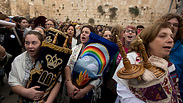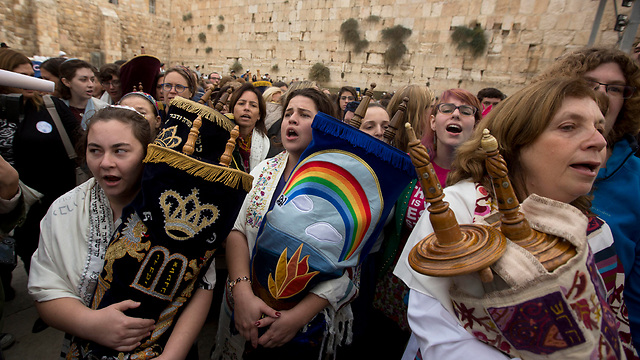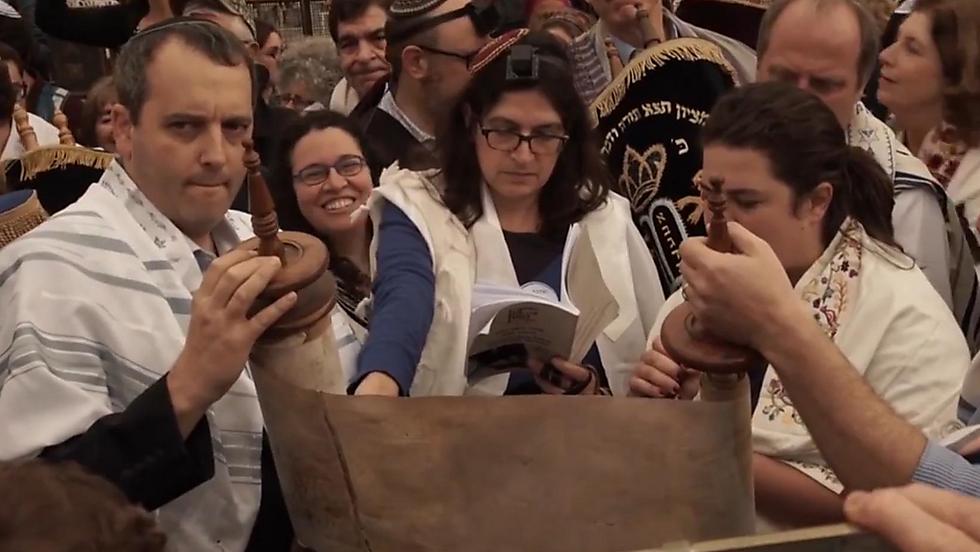
Poll: number of Reform Jews in Israel doubles
Increasing number of Israelis support non-orthodox streams of Judaism; 63% prefer to pray in a non gender segregated synagogue; 58% believe Chief Rabbinate not contributing to State's identity; 81% of public supports equality for all denominations.
Israel’s population of Jews who identify with the liberal Reform movement has more than doubled over the past seven years, despite remaining considerably low, according to a new poll conducted by the Dialog consulting firm.
The seven percent of Jews in Israel identifying with the movement marks a significant increase from the last survey conducted by the Israel Democracy Institute in 2010, which recorded a meager 3.7% of Israeli Jews hailing from the liberal stream.
According to the poll, 44% of Israelis do not identify with any religious stream, while 29% identify as Religious Zionist.
The lowest religious affiliation in the country is with the Conservative movement, with just 4% identifying with the liberal denomination.10% described themselves as Ultra Orthodox in the latest poll, while 5% marked other.
The poll also showed that 56% of secular and 38% of traditional Israelis participated, in the last year, in a wedding or Bar Mitzvah ceremony that was officiated by a Reform or Conservative Rabbi.
The director of the Movement for Progressive Judaism, Gilad Kariv, said that the latest statistics confirmed that despite the ongoing opposition by the rabbinical establishment against Reform Jewry and the budgetary discrimination, many Israelis support the movement.
A clear majority of the population—58% versus 33%—supports the right of Reform and Conservative Jews and of Women of the Wall to pray at the Western Wall. The figures also revealed that 49% of those polled agreed that the Kotel compromise damaged the relationship with Diaspora Jewry, while 34% disagreed.
Other numbers indicated a more progressive trend in Israeli society, with 63% of Israelis saying they prefer to pray in a synagogue that does not separate men and women. By contrast, only 11% prefer a synagogue with a partition.
An overwhelming majority, 58%, of Israelis polled rejected the position that the Chief Rabbinate contributes to the identity of the state of Israel and brings the Israeli public closer to tradition. 35% disagreed.
Among traditional Israelis, 64% said they held reservations regarding the role of the Chief Rabbinate and even in the Religious Zionist sector 28% felt the same way.
Granting full equality to the non-Orthodox denominations enjoys a high level of support among the secular public (81%) and for the first time, among the traditional populace, as well (49% versus 40%).
Equality enjoys significant support among center-right irreligious voters (41% Likud, 54% Yisrael Beytenu, and 50% Kulanu); low support among Bayit Yehudi and Shas voters (10%); and substantial support among center-left voters.
Only a slim majority support recognition of Reform conversions in Israel (48% versus 45%). Recognition of marriages conducted by Reform Rabbis is supported by a slightly higher level of support (51% versus 42%).












